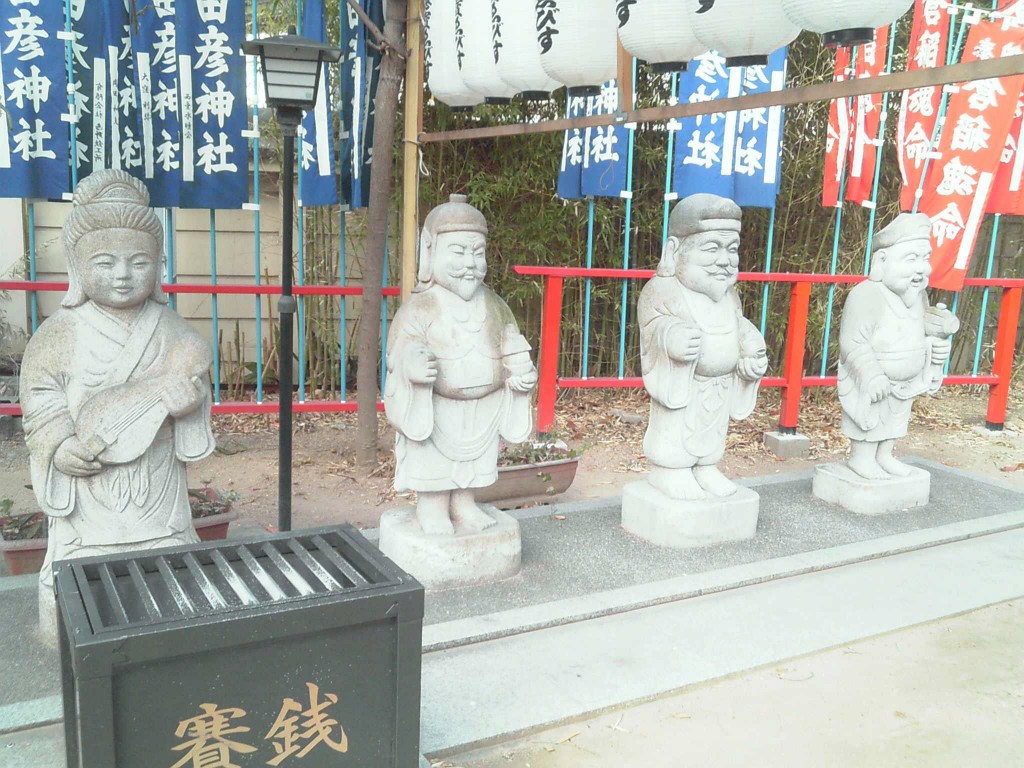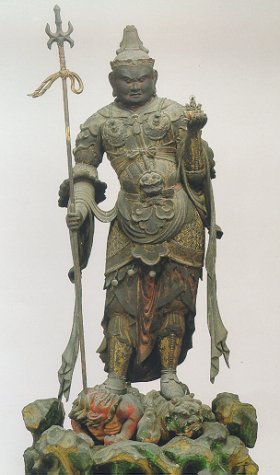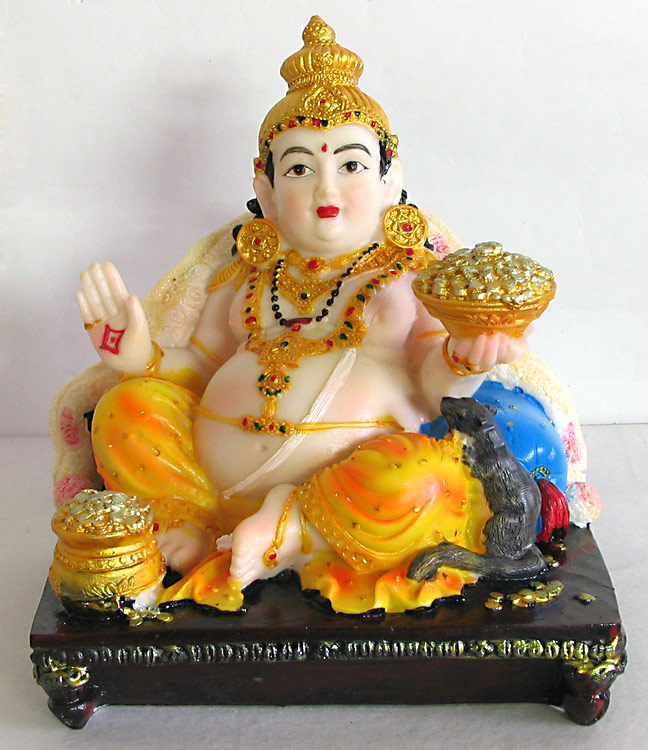
Four of the Seven Lucky Gods. Bishamonten is second from the left, holding a pagoda in his hand
 Bishamonten can sometimes be seen in Shinto shrines as one of the Seven Lucky Gods. He’s recognisable by the pagoda he holds in one hand and often a spear in the other. He is closely associated with the north, of which he is the guardian.
Bishamonten can sometimes be seen in Shinto shrines as one of the Seven Lucky Gods. He’s recognisable by the pagoda he holds in one hand and often a spear in the other. He is closely associated with the north, of which he is the guardian.
Bishamonten came to Japan as part of the Buddhist pantheon, in which he plays an important role as the most powerful among the Four Heavenly Kings. These Guardians of the Four Directions are called Shitenno in Japanese and protect the enlightened.
Originally Bishamonten derived from Kubera, the Hindu god of darkness, treasures, and wealth. His color is black, and he is sometimes called the “Black Warrior.” His symbols in India are the flag, the jewel, and the mongoose.
According to Wikipedia: “He is regarded as the regent of the North, and a protector of the world (Lokapala) His many epithets extol him as the overlord of numerous semi-divine species and the owner of the treasures of the world. Kubera is often depicted as a fat man, adorned with jewels and carrying a money-pot or money-bag, and a club.”
This is quite a contrast with his image In Japan. “Bishamonten (毘沙門天), or just Bishamon (毘沙門) is thought of as an armor-clad god of warfare or warriors and a punisher of evildoers – a view that is at odds with the more pacific Buddhist king described above. Bishamon is portrayed holding a spear in one hand and a small pagoda in the other hand, the latter symbolizing the divine treasure house, whose contents he both guards and gives away.”
So, curiously, in the long journey from ancient India to Buddhist Japan, a jolly fat fellow with a money-pot transmuted into a fiercesome protector of Buddhas. And in the process a Hindu deity was taken up and absorbed into Shinto in a process that Joseph Campbell demonstrated so well in The Masks of God. One mountain, many paths; one deity, many faces.

Kubera, the Hindu god of wealth and origin of Bishamonten (courtesy of Kubera Kolam blogspot)

Leave a Reply